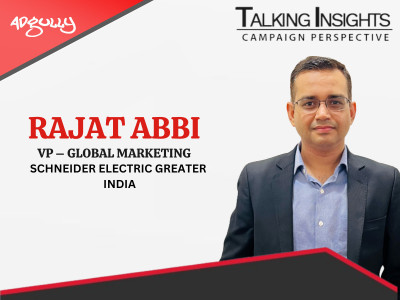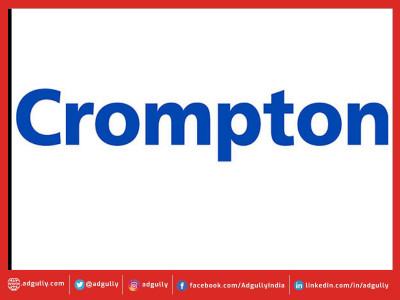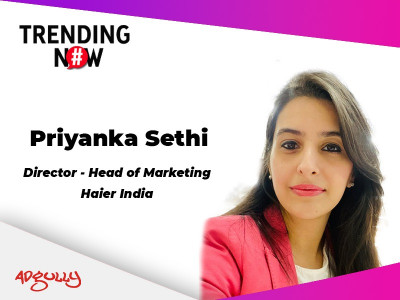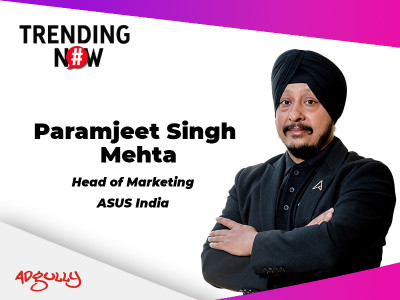Sustainability needs to be holistically integrated across all walks of life: Rajat Abbi
Sustainability is at the heart of Schneider Electric’s culture, history and business. The unique part of their sustainability strategy is that they play on both the sides of the equation. For its own operation, Schneider is committed to achieving carbon neutrality in its own operations by 2025 and net-zero emissions by 2030.
Playing a decisive role on the ESG front, the company launched their much coveted Green Yodha initiative last year to nurture and unite a community of eco-warriors for taking decisive climate action. These actions include the adoption of sustainable practices in the area of energy efficiency, renewables, automation and digitisation to meet individual and corporate sustainability goals.
Since its launch, the program has created a stir amongst the businesses as well as the Government of India. Nine major organisations have endorsed the campaign, including the Ministry of Jal Shakti, Marriott India, JK Cements, Pepsico, Haldirams, Capgemini, Club Mahindra, UST Global, and the Central Electricity Authority of India.
Also Read: Bikano saw 20% hike in sales this festive season, compared to last year: Sanjeev Wadhwa
Speaking to Adgully for their column Talking Insights, Rajat Abbi, VP – Global Marketing, Schneider Electric, Greater India, elaborates on the Green Yodha initiative, how sustainability can become a business prerogative, building purpose-led sustainable brands, and more.
On what terms do you think your approach differs from fellow competitors when it comes to marketing strategies?
Simply put, our approach is different as we believe in and thrive on Responsible Marketing. I firmly believe that purpose-led enterprises can lay the foundation for a sustainable and equitable future for everyone, everywhere. The expectations from the ‘Decade of Action’ are huge and the onus lies on all of us to accelerate the shift towards sustainability. As an Impact company, Schneider Electric has been at the forefront of bridging sustainability and progress for all. I am confident that responsible marketing is vital for fulfilling this vision. The switch to sustainability can only be guaranteed if it receives widespread support from all sections of the society.
Aligned with this approach, we launched the Green Yodha initiative last year to develop an ecosystem of like-minded businesses, governments, NGOs, and individuals for taking decisive action against climate change and join the good fight. We have received tremendous support from across sectors in the year gone by. This campaign has acted as a key differentiator for our marketing approach as it has allowed us to connect with our target audience on a larger cause and driving a sense of urgency towards sustainability.
How can sustainability become a business prerogative with Green Yodha?
Sustainability is no more a choice; it is a behavioural shift that needs to be holistically integrated across all walks of life. The recently concluded COP27 has shifted the focus on climate solidarity building a compelling case for companies to strategise their transition to sustainability. And, aligning with India’s commitment of achieving net-zero by 2070, businesses today should keep an active track of carbon footprint garnered through everything they do. Becoming a Green Yodha can help businesses do just that – which is to become more sustainable in their operations.
At Schneider Electric India, we play on both sides of the equation. We enable not just our customers and partners, but also our employees and the society at large to walk the green path. We are committed towards becoming the country’s Sustainability Partner by creating a climate-positive society. Through EcoStruxure, Schneider Electric’s IoT-enabled, plug-and-play, open, interoperable architecture, and platform, we are bringing innovation at every level from connected products to edge control and apps, analytics, and services.
We have helped our customers save 407 million tonnes of CO2 emissions between 2018 and 2022, with a target of saving 800 million tonnes by 2025.
Our R&D team ensures that all our products are made with an eco-design approach that can be easily repaired, upgraded, and dismantled at end-of-life. Our Green Premium program ensures that our products come with Product Environmental Profiles (PEP), End-of-Life Instructions (EoLI) and comply with global regulations like RoHS and REACh.
By 2025, we’re committed to have 80% of product revenue coming from Green Premium products.
What has been your engagement strategy with your audience? How is this great initiative leveraged on the media front?
Our research pointed towards a lack of awareness around green business practices and misconceptions about the high cost of adopting digital automation and technology. Thereby, we chose to position the ‘Green Yodha’ sustainability initiative as a strong brand business initiative to encourage behaviour change in both individuals and businesses.
Adopting a 360-degree approach, we leveraged digital marketing as well as hybrid events route for engaging with our target audience. This initiative was launched through a press conference with the encouraging support from Amitabh Kant, former CEO of Niti Aayog. We have consistently explored newer communication avenues. We have extensively used Digital and Social Media channels to reach and engage with our target audience. This includes the dedicated Green Yodha section on our website, which provides opportunity to sustainability enthusiasts to sign up as a 'Green Yodha’, use advisory services, and stay connected. Further, individuals can calculate their carbon footprint and adopt energy efficiency practices to lead a more sustainable life.
We rolled out Green Yodha Yatra’s across various states, including Delhi, Punjab, Haryana, Rajasthan, Uttar Pradesh, Madhya Pradesh, Gujarat, Maharashtra, Assam, Jammu and Kashmir, Tamil Nadu, Telangana, Karnataka, and Andhra Pradesh, etc., connecting with both private and public sectors.
Through these initiatives, we’ve spread awareness amongst 10 million+ individuals and businesses in last one year.
Please tell us about the key activities of the Green Yodha in the year gone by, as well as the plans for the coming year.
We are thrilled and motivated with the support received from governments and industries across sectors over the last year. The launch of the Green Yodha campaign was strategically planned after COP26 to connect with individuals and organisations that are committed towards sustainability and bring them to a common platform to discuss ways and actions needed for accelerating the fight towards climate change. Leading Indian companies like JK Cements, PepsiCo, Haldirams, Marriott Hotels, UST Global, 3M, etc., have joined the good fight and become Green Yodha.
This year, we also became the sustainability partners for Rajasthan Royals IPL team. The team and management pledged to become a Green Yodha and play a pivotal role in transforming cricket into an environment friendly game.
We are also immensely proud to have collaborated with the Ministry of Jal Shakti for integrating sustainable practices in the Water and Wastewater segment. Having received encouragement from Amitabh Kant, G20 Sherpa, GoI, we are confident that we are walking on the right path. We hope to carry forward this vigour in the coming year and expand the scale of Green Yodha to make it a mass movement that brings everyone from government bodies, corporate organisations, and citizens together for taking decisive climate action.
What has been your role in building purpose-led sustainable brands?
The World Economic Forum has called the current push towards sustainability as an ‘eco-awakening’, with more and more consumers holding businesses accountable and demanding that they drive positive change. It is safe to say that eco-conscious consumers along with the desire to attain business continuity is driving brands to embrace sustainability as an organisational as well as operational imperative.
Recently, at COP27, the UN emphasised that the private sector has a central role to play in driving the climate goals of the countries as per the NDC. Therefore, businesses must set a positive example to drive changes for a greener tomorrow. This is where marketing comes into picture. Purpose-driven marketing inspires the masses and unites them to drive the change. I believe that marketing has the power to reach a wide group of people and we must capitalise on this aspect for building a cleaner, greener, and a sustainable future for all.
My vision is to create a mass movement through our Green Yodha initiative and help our customers in their journey from intent to action.
Who is the communication targeted at? Could you elaborate on the profile of the audience?
People from all walks of life are being affected by the impact of climate change and sustainability as a way of life has taken the centre stage. Therefore, it only makes sense that we redefine our communications to reach out to a wide audience to garner support from all sections of the society for the sustainability initiative.
Our Green Yodha campaign was envisioned as a mass movement, to do our bit and create a sense of urgency amongst a diverse set of stakeholders, on their responsibilities towards sustainability. We want to encourage businesses, governments, NGOs, institutions, and individuals to adopt sustainable practices in their daily lives.
Green Yodha is a people-centric sustainability initiative with a three-pronged strategy of ‘Educating’ and ‘Engaging’ individuals, communities, and businesses, as well as ‘Establishing’ long-term relationships, turning this initiative into a movement ‘For and By Green Yodhas’. We are certain that collective action would enable society to make permanent lifestyle and behavioural changes.


















Share
Facebook
YouTube
Tweet
Twitter
LinkedIn